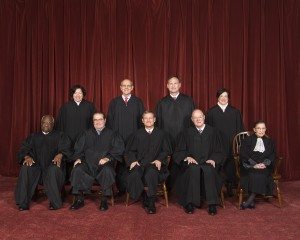On October 3, 2010, Tyler G. McNeely was pulled over and arrested for DUI in Cape Girardeau, Missouri. When the arresting officer noticed that McNeely displayed symptoms of intoxication, he asked him to perform several field sobriety tests which McNeely failed. After placing McNeely under arrest, the officer and 17 year veteran of the highway patrol asked him to submit a breath test but McNeely refused. The officer, having just read an article describing a change in Missouri Law that meant warrants were no longer required for blood tests, drove McNeely to a nearby hospital and ordered a blood test to be done.
McNeely was charged with DUI but claimed that the blood test constituted an illegal search and seizure, violating his Fourth Amendment rights. The Missouri Supreme Court took McNeely’s side last January, claiming that there was no emergency situation in which the evidence was in danger of disappearing. Missouri State Prosecutors appealed that decision and now the 9 justices in the Federal Supreme Court have agreed to hear the case. Often, police implement ‘no refusal’ time periods where drunk drivers can have their blood tested despite refusal and are often used to crack down on drunk driving during holidays, when drunk driving is at its highest. Officers use these ‘no refusal’ periods to quickly test drivers blood because as time passes, a person’s BAC level can decrease and may not accurately represent a persons level of intoxication at the time of arrest.
If you or someone you know has been arrested for driving drunk, contact a skilled Missouri DUI attorney for legal assistance.

